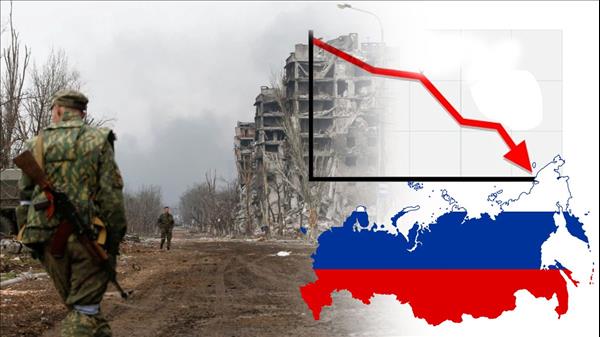
A Leading Russian Economist Has Predicted That The Military Mobilization Will Have“Disastrous Effects” That Will Cause The Russian Economy To“Die” By Winter.
Some have argued that the international sanctions imposed on Russia in the seven months since its invasion of Ukraine weren't severe enough because Russians continued to travel, shop, party, and live their regular lives.
Vladimir Putin, the president of Russia, may now take a step that serves as the starting point for the war to reach home and truly devastate his country's economy.
Putin ordered 300,000 physically fit men between the ages of 18 and 30 in the military reserves to fight in Ukraine as part of a“partial” mobilization last week, which sparked widespread demonstrations across the nation and was first mobilization order since World War II.
“I believe this choice, which is entirely acceptable given the risks we face, is required to safeguard our country. To guarantee the security of both the citizens of our country and the freed lands,” Putin stated last week.
More than 2,300 protesting citizens were detained by Russian authorities in the days that followed, and thousands of Russians have since left the nation to evade the draft. Vladislav Inozemtsev , a Russian economist and the director of the Moscow-based Center for Research on Post-industrial Studies, is now stating that the mobilization of Putin will have“really devastating effects,” including the death of the Russian economy and the dissolution of Putin's government.
“In early March, I predicted the Russian economy would collapse by winter. I believe I was correct now. The mobilization declared on September 21 was a turning point that effectively separated Russian history into before and after —an occasion that signaled the start of Putin's presidency's final countdown,”—the economist wrote on Sunday for the Russian website The Insider.
Putin's mobilization order has already caused numerous protests and large-scale rallies in Russia. This will bring catastrophic consequences.
In the Siberian city of Irkutsk, a shooter opened fire at a military recruitment office on Monday, hurting one person. The name and motive of the shooter remain unknown. 115 miles southeast of Moscow in the city of Ryazan, a guy, lit himself on fire while yelling that he didn't want to fight in Ukraine. At least 400 people, predominantly women, demonstrated in Yakutsk's downtown throughout the past week, pleading with the police to“let our children live.”
According to several reports from anonymous media outlets and academics, the Kremlin is probably planning to conscript more than 1.2 million soldiers to fight in Ukraine. Dmitry Peskov , the press secretary for the Kremlin, has refuted this assertion.
After Putin specifically stated that full-time university students would not be called up to serve in Ukraine, police and recruitment officers also picked up students. While this is happening, anti-war protesters have criticized the government for deploying disproportionate numbers of ethnic minorities from its Caucasus and Siberian regions to fight in Ukraine. According to anonymous media sources, about half of the male population has been transported to military assembly stations from rural communities in Buryatia, an area of eastern Siberia that Russia occupied in the 18th century.
Inozemtsev concurred with projections that Russia's GDP would decline by about 4-5% this year before Putin's mobilization order. However, he now thinks Russia's GDP will decline by that amount in October and that the“next months will simply solidify the trend.”“My prediction of a 10% decrease in the spring now appears almost overly optimistic,” he remarked.
The economist believes that because the Kremlin is solely focused on mobilization and war activities, government funding will be allocated to these programs at the expense of investment in business and the economy.
According to Inozemtsev, company investments will start to fall down significantly, and the Moscow Stock Exchange might close the year below 1,500 points.
The economic effects will be severe in Russia's poorer regions, such as Buryatia, where“thousands of families will be left without income and local medium and small businesses will simply die out,” Inozemtsev warned.
He said that three to four million additional men would disappear from the job market, and Russia would also lose hundreds of thousands of soldiers to the front lines of the conflict. Most people in Russia's wealthiest cities, such as Moscow and St. Petersburg, have the means to leave the country. However, Inozemtsev forecasts that army officials will soon begin delivering recruiting papers to people's places of employment, causing many to resign or simply fail to show up for work to avoid receiving a summons

Legal Disclaimer:
MENAFN provides the
information “as is” without warranty of any kind. We do not accept
any responsibility or liability for the accuracy, content, images,
videos, licenses, completeness, legality, or reliability of the information
contained in this article. If you have any complaints or copyright
issues related to this article, kindly contact the provider above.


















Comments
No comment